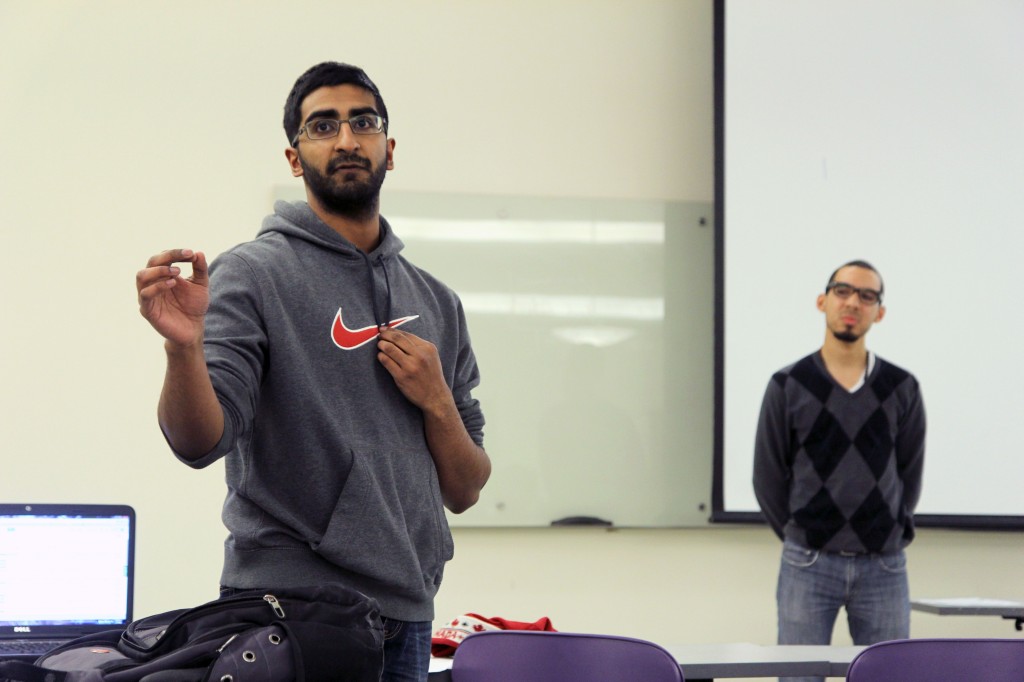
Monday’s Student Congress meeting saw proposed legislation to censure two members of the Student Association Executive Board. Neither Derrick Conyers, the vice president for academic affairs, nor Ravi Prakriya, the vice president for finance (VPF), were censured, raising questions about the efficacy of the Congress to adequately punish E-Board members who are not performing.
Legislation proposed by Zachery Szkolnik, a representative from the Off Campus College Council, and authored by Bryan Delacruz, a member of the Financial Council and an assistant in the vice president for finance’s office, asked for Prakriya to be censured, or formally reprimanded by the body.
The allegations against Prakriya had several parts. First, it stated that the VPF’s budget was late, and Prakriya did not update the Treasurer’s Handbook, which provides guidelines for group treasurers to submit vouchers to make necessary purchases for their respective clubs. Critics said Prakriya was using too much of his own discretion, and vouchers were getting denied after being held up to un-publicized standards. Other criticism involved Prakriya being absent from the SA office and being inaccessible to groups and for meetings, and called for him to have regular office hours and to inform constituents about absences.
“If he’s too busy, then clearly, there are better things he should be doing,” Delacruz said. “Ravi is clearly one of the most qualified — if I didn’t think he was qualified, I would motion to impeach.”
Debate centered largely on the legislation’s claims that Prakriya has “incited resentment among student organizations” by rejecting vouchers or not attending to them in a timely manner. Madjeen Garcon, the vice president of the Black Student Union, and other representatives of the organization came to voice their grievances about how a contract of theirs was handled. Garcon said that she was unable to pay performers at a Black History Month event because her contract sat unprocessed for a month.
“If one group is unhappy with me, I hesitate to say that I have incited resentment,” Prakriya said.
Delacruz maintained that there were other groups with similar grievances, though he could not disclose group names, which he said was due to reasons of confidentiality.
Prakriya defended himself on all allegations, and said he would try to get the Treasurer’s Handbook rewritten in a timely manner. He asserted that he was far more available in the month of February than his critics gave him credit for, and that his office hours were “infinite” in that he was available to meet with anyone any time that he was not in class or in a meeting.
As far as the budget and VPF report go, Prakriya was less than apologetic for not calling a special session of Congress on Saturday to deliver the budget, instead opting to submit it two days later at the regularly scheduled meeting.
“The problem with that, is that the March 1 deadline was on a Saturday … frankly, the document wasn’t ready. If you would have preferred to call a special meeting of Congress just to pitch the budget packet, that’s fine. I don’t think that makes a lot of sense,” Prakriya said.
Eric Larson, the president of the SA, also noted that no VPF has ever submitted a report, despite the fact that it is required by the SA Constitution.
This problem is exactly the one that Conyers said he wanted to solve with his move to get himself censured as well. Reports are required from every E-Board member, and when a member does not submit a report, he or she can be censured, as Conyers was two weeks ago, and almost was again last night. Conyers said he intentionally did not submit his reports in order to shed light on the inherent inadequacy of the censuring process, which he called a mere “slap on the wrist.”
“Congress designs the E-Board with some borders in mind, but without enforcement, there’s no incentive to stay within those borders,” Conyers said.
Andrew Henry, the vice speaker for the Student Congress, called Conyers’ plan a “farce” that he planned with the help of his friends “to get some kind of reaction.”
Ultimately, the Student Congress voted against censuring either E-Board member. Chris Zamlout, the chair of the Internal Affairs Committee, said he thought the procedure was essentially useless.
“If censured, nothing comes from it, it is public shaming for no reason,” he said on Conyers’ behalf.


